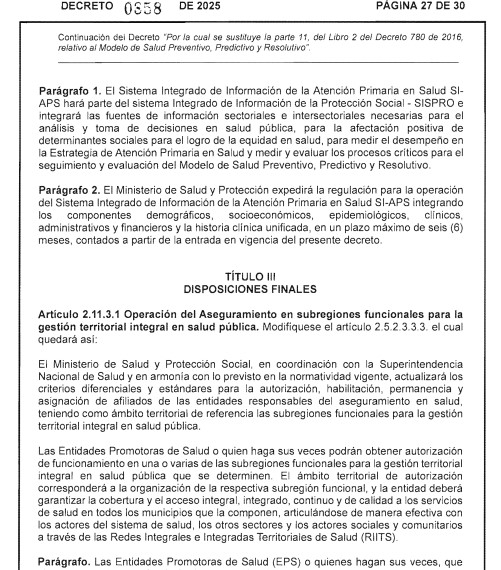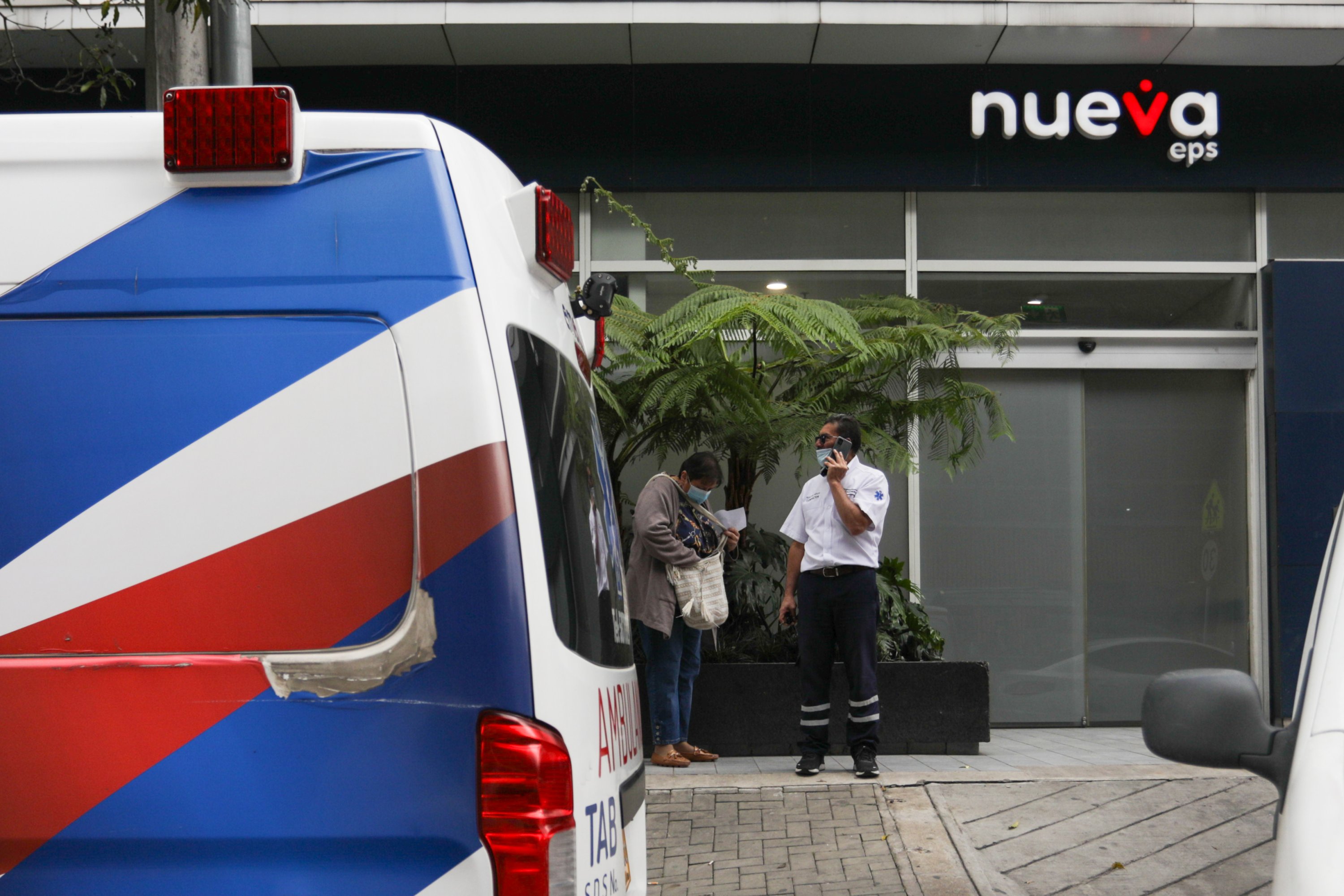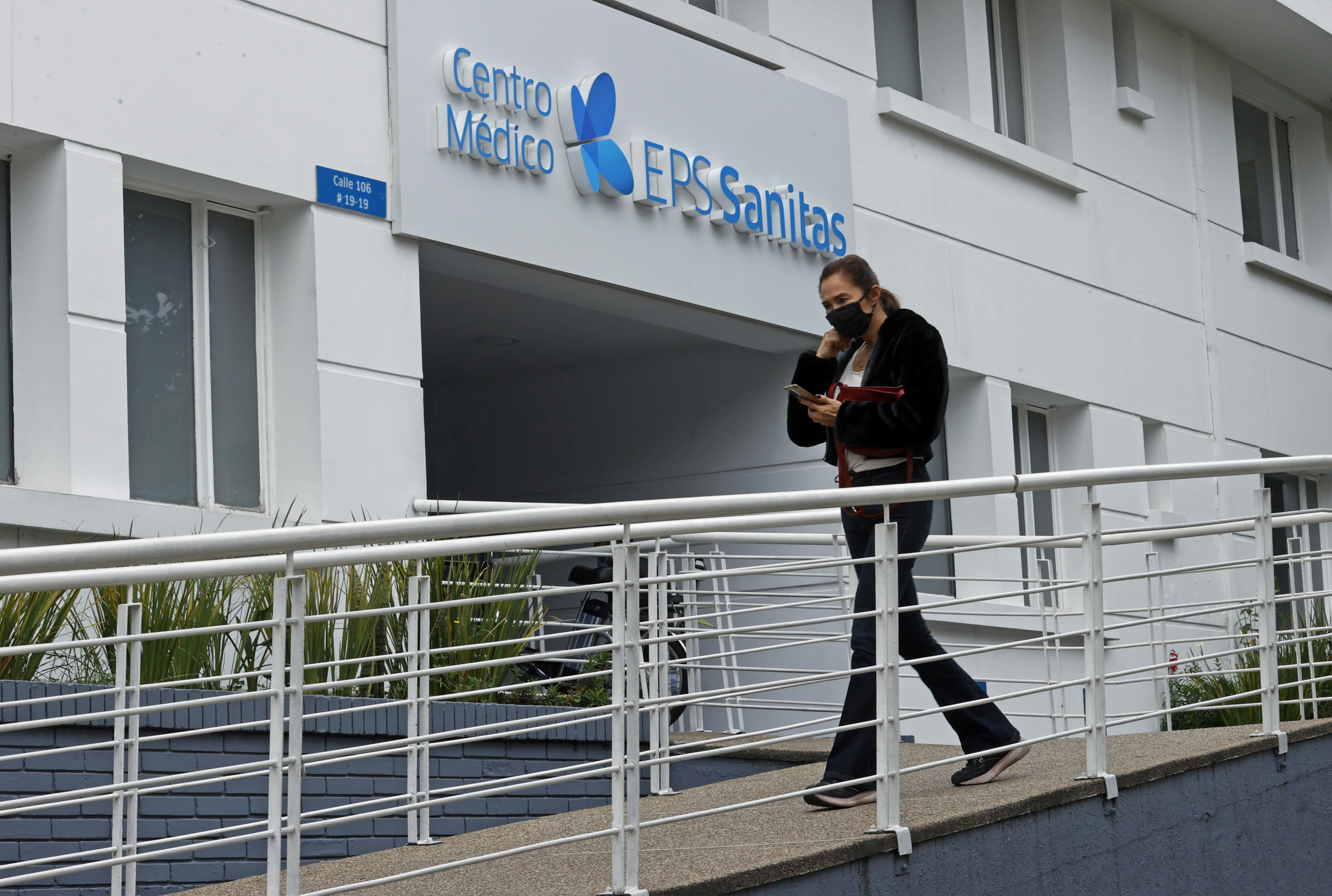New preventive health model: These are the changes that EPSs will undergo in Colombia.

Colombia woke up to the surprise announcement that the health care reform proposed by the current National Government was approved through Decree 0858 of 2025. This change raises doubts and uncertainties about what the future holds for the system that serves Colombians, especially regarding the future of the Health Promotion Entities (EPS).
The Ministry of Health officially adopted the Preventive, Predictive, and Resolute Health Model on July 30th by decree after the initiative had stalled.
The model, as the document points out, seeks to guarantee the fundamental right to health through comprehensive, proactive, and territorialized care , with an emphasis on promotion, prevention, and strengthening of the primary level of care.

Page of Decree 0858 of July 30, 2025. Photo: Ministry of Health
While there has been a latent fear that these health care providers will disappear or fall under total state control due to interventions carried out in the recent past, it must be said that the EPSs will not disappear from the health system.
These entities will lose prominence in the new system, initiating an integration between the State, territories, and other actors.
However, the entities will have modified and redefined functions in order to implement the policies of this model to become Health Managers.

Facade of one of Nueva EPS's headquarters. Photo: César Melgarejo/El Tiempo @melgarejocesarnew
The decree changes the way EPSs receive authorization to operate. Now, instead of being authorized by department, they must adhere to new "functional subregions" defined by the government.
Learn about the changes to the EPS The reform introduces the concept of Comprehensive and Integrated Territorial Health Networks (RIITS) , which consist of providing services through a partnership between public, private, and mixed entities based on the needs of the region.
Thus, the EPS will have to coordinate with the RIITS and participate in the coordination and efficiency of service provision. This means that health providers will no longer be intermediaries or a central axis in the system, but rather just another player within a network led by the Ministry of Health and the authorities of each territory.

EPS Sanitas is one of the most recent examples of state intervention. Photo: Mauricio Dueñas / EFE
The decree shifts care from curative to preventive. That is, it provides early care through interventions carried out by Territorial Health Teams , which will be permanently working in communities, where professionals will visit patients directly. These will be administered by the State itself.
In this case, the EPSs will have to collaborate and coordinate with these teams to ensure continuity of care for their members, as reported by EL TIEMPO.
The only thing that remains unchanged is the management of financial risk and the management of health risks for members.
María Paula Rodríguez Rozo
LATEST NEWS EDITORIAL
eltiempo





